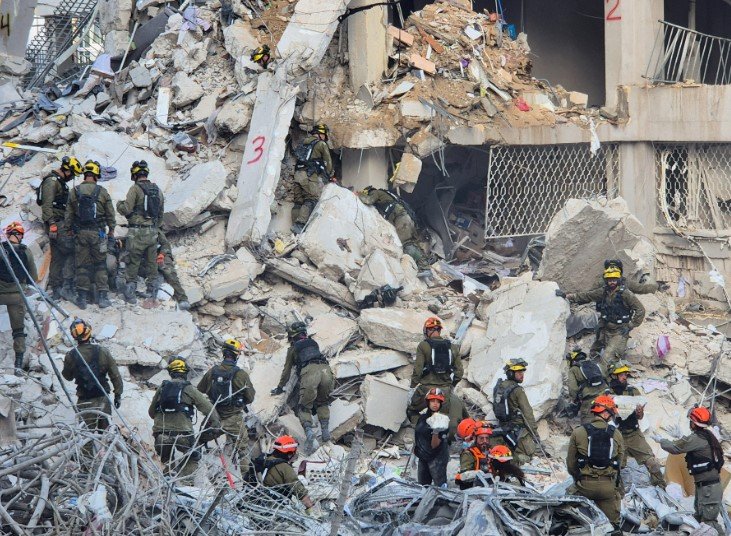More than a month after Israeli airstrikes tore through part of Iran’s infamous Evin prison, the ordeal for detainees has only worsened. Far from relief, those transferred to other facilities are now describing conditions so severe, they say it’s like being punished twice.
While Iranian authorities initially vowed to relocate prisoners safely and swiftly restore order, families and human rights groups are now warning of overcrowding, heat exhaustion, poor sanitation, and rampant neglect in multiple prisons across the country.
Evin’s Collapse Was Just the Beginning
The attack on Evin Prison, located in the northern hills of Tehran, marked one of the most dramatic and controversial incidents in the Israel–Iran conflict last month. The site, long synonymous with political repression, became a war zone overnight as Israeli missiles tore through its administrative and holding blocks.
Several prisoners and guards were reportedly killed, though exact numbers remain murky due to tight government censorship.
What’s clear is this: hundreds of detainees had to be urgently moved—many to jails already under strain.
“People thought they were lucky to survive,” said a family member of one detainee, speaking to the BBC Persian service under condition of anonymity. “But where they’ve been sent—it’s worse than anyone imagined.”
Detainees Report Extreme Overcrowding and No Air
One of the most common complaints? Cells packed well beyond capacity.
Multiple families say their loved ones have been crammed into 10-person cells now holding 25 or more, without functioning ventilation or cooling—a nightmare in Iran’s sweltering July heat.
There are not enough beds. Some prisoners are sleeping on floors, newspapers, or whatever plastic they can find. Toilets are limited, and the lines are long.
• Some facilities report 1 toilet per 60 inmates
• Many shower only once a week—sometimes less
• Fans or A/C are mostly nonexistent
One inmate reportedly told his sister during a brief call, “I haven’t slept in five days. It’s like a human oven.”

Promised Relief, Delayed or Denied
In the immediate aftermath of the Evin strike, Iranian officials tried to reassure families and rights monitors. There would be temporary transfers, medical checks, improved conditions, and even legal reassessments for low-risk detainees.
But so far, those promises haven’t materialized.
The Iranian Prisons Organization has released no transparent figures about the number of affected prisoners, their current locations, or even the structural status of Evin. Independent access for humanitarian groups remains blocked.
One sentence here: silence has replaced accountability.
Families Left in the Dark, and Fearful
For many families, the hardest part isn’t just the poor conditions—but the lack of contact.
Dozens of families report they haven’t heard from their relatives in over two weeks. Prison authorities are allegedly rotating call schedules or cutting phone access entirely—ostensibly for security reasons.
Others say visiting rights have been suspended altogether. When they go to inquire, they’re met with stonewalling or vague excuses.
“My brother was moved, but we don’t know where,” one woman told BBC Persian. “Every prison says he’s not there.”
The fear, of course, is that someone who survived the Evin blast may have disappeared into Iran’s opaque detention network.
Who Are the Detainees?
Evin has long held a mix of political prisoners, dual nationals, journalists, activists, and white-collar detainees accused of espionage or cybercrimes. Human rights organizations believe that many of those displaced fall into these categories.
This isn’t just a logistical crisis—it’s a legal and humanitarian one.
Among those reportedly affected:
-
Several women’s rights activists
-
Detained university students from last year’s protests
-
At least 10 foreign nationals, including Europeans and dual citizens
One activist, previously held in Ward 8 of Evin, is now believed to be in Qezel Hesar Prison near Karaj. His letters smuggled out describe conditions “worse than animals are kept in.”
Human Rights Watchdogs Ring Alarm Bells
Global human rights groups, including Amnesty International and Human Rights Watch, are now demanding independent access to affected prisons.
“This is not just about overcrowding,” one regional director said. “It’s about punishment by neglect.”
They’re calling for immediate transparency from Tehran, emergency aid to overcrowded facilities, and urgent medical attention for detainees suffering from dehydration and infection.
One sentence again: Tehran hasn’t responded to these calls.
